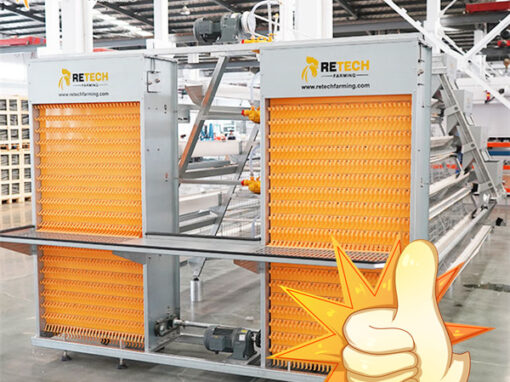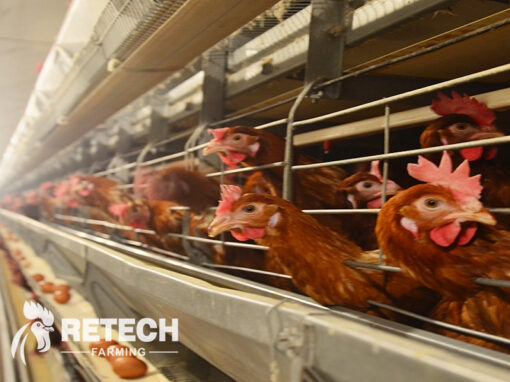1.Group transfer management during the quasi-peak period
2 weeks before the transfer, fully disinfect the laying hen houses, chicken cages, and troughs. Eliminate sick, weak, disabled and stunted chickens, trim their beaks, and vaccinate them.
Antibiotics and anti-stress multivitamins were added to the feed 3 days before the transfer. Feed the chickens for 2 to 4 hours before transferring to the group to achieve fasting transfer. 2 hours before transferring to the group, feed should be added to the trough and water should be added to the water tank.
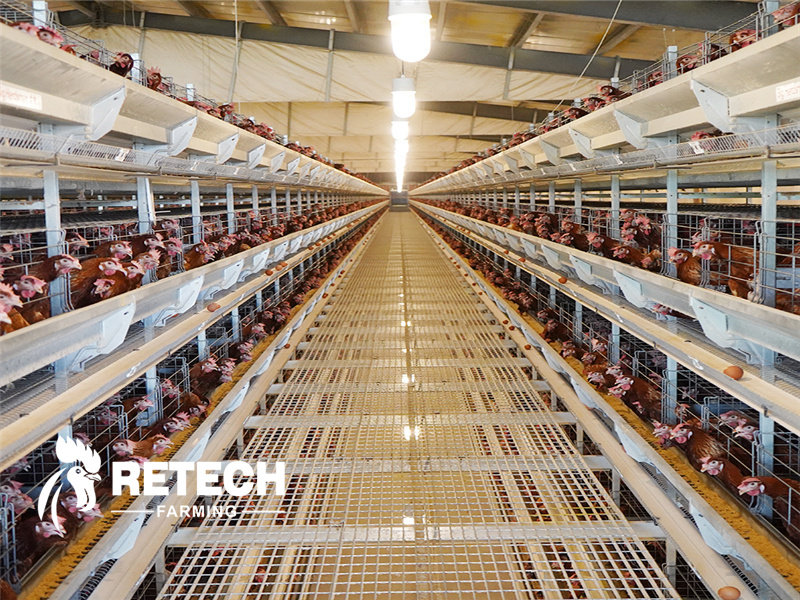
modern chicken farms
It is best to transfer groups at night under dim light, grasp and let go gently to reduce stress. Drink water as soon as possible after transfer, start eating, and turn off the light to rest after the chickens are full.
2. Environmental factors during the peak egg production period
(1) temperature
The optimum temperature for laying hens is 13 degrees to 18.3 degrees. For most chicken houses, it is mostly open or half-open. In summer, when the temperature is higher than 30 degrees, you can spray water on the roof and inside the house, etc. Form to achieve the purpose of cooling. When the temperature is lower than 7.8 degrees in winter, the doors and windows should be closed and heated with a heater if necessary.

chicken farm wet curtains
(2) ventilation
Well-ventilated to ensure fresh air in the coop. Ventilation in winter must be coordinated with heat preservation. Doors and windows must be closed at night, and the reserved air intakes should also be buffered to prevent drafts. Open all doors and windows facing the sun when it is sunny during the day. The chicken manure was removed in time to ensure that the harmful gas content in the chicken house did not exceed the standard, including 20 mg/kg of ammonia, 0.15% of carbon dioxide, and 0.01% of hydrogen sulfide.
Usually, it is better for people not to feel the pungent smell when they enter the chicken house.
(3) Correct lighting system
The sexual maturity of poultry is affected by light, and the effect of light on sexual maturity is the result of long-term accumulation. Light is an important factor affecting egg production. Appropriate light can promote growth, control sexual maturity, and promote egg production; inappropriate Illumination can cause poultry fatigue, pecking habits, and decreased egg production. The light intensity requires 10-13 lux, generally 3-5 watts per square meter in the house is appropriate, the wattage of the bulb is between 25-60 watts, and the height from the ground is about 2 meters.
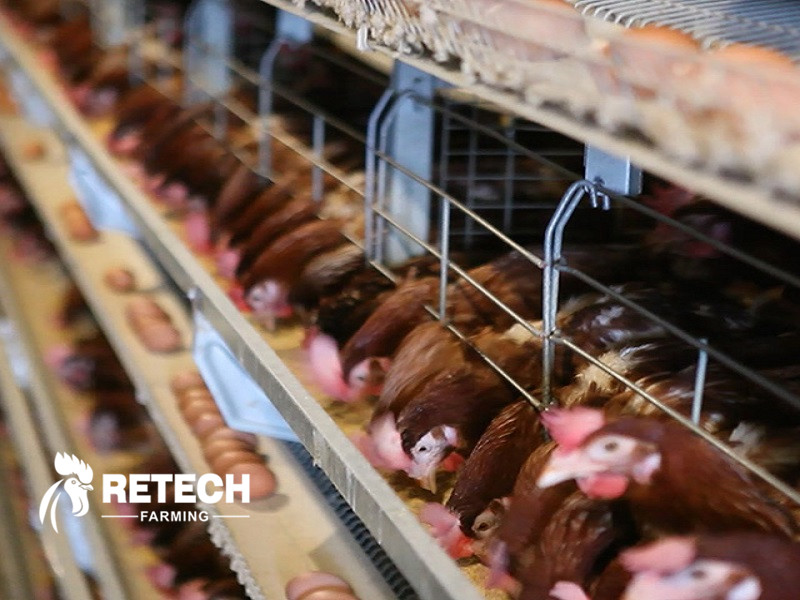
Breeding management Equipment for raising chickens!
The lights are mainly red and green. During the peak egg production period, the lighting time of the flock should be 15-16 hours per day. When the natural lighting is insufficient, the lighting can be artificially supplemented. In the past, it was used to supplement light at night. Once the light time was determined, it should not be changed arbitrarily. If the light is insufficient, the egg production rate will decrease. If the light time is too long, the egg breakage rate will increase.
(4) Reduce stress
During the critical period when chickens reach the peak egg production, ammonium bicarbonate is added to the diet. During heat stress, the heat loss of the body increases, and the content of bicarbonate ions in the blood decreases, resulting in an increase in PH value, and respiratory alkalosis may occur . Adding 0.1% to 0.2% ammonium bicarbonate to the diet can maintain a stable level of bicarbonate ions in the blood, thereby relieving heat stress.
3. Dietary factors during the peak egg production period
(1) Supply sufficient clean drinking water.
(2) supplement green feed.
(3) Sufficient protein and amino acids.
(4) Control energy.
(5) Add enough calcium.
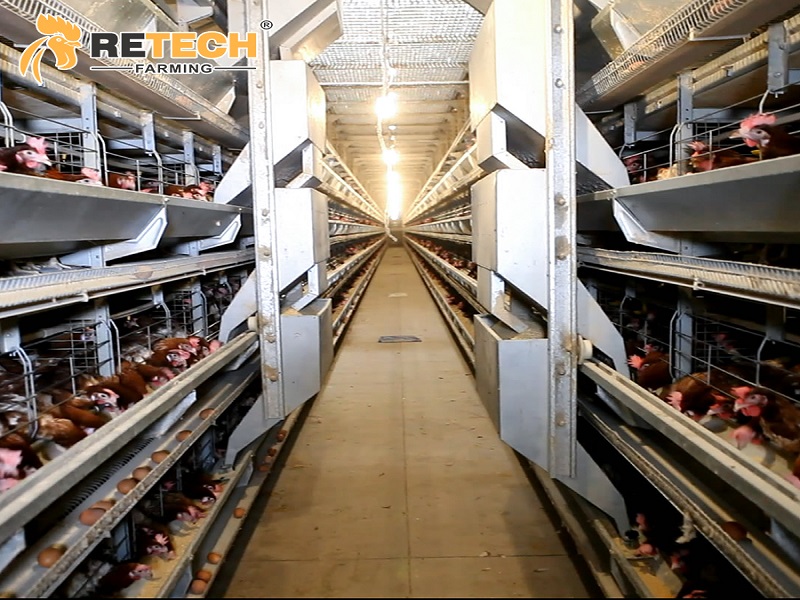
feeding system chicken cage
About 56% of the daily calcium intake of laying hens is used to form eggshells. If the calcium intake is insufficient, the calcium in the bones will be used, which will reduce the egg production rate in the long run.

